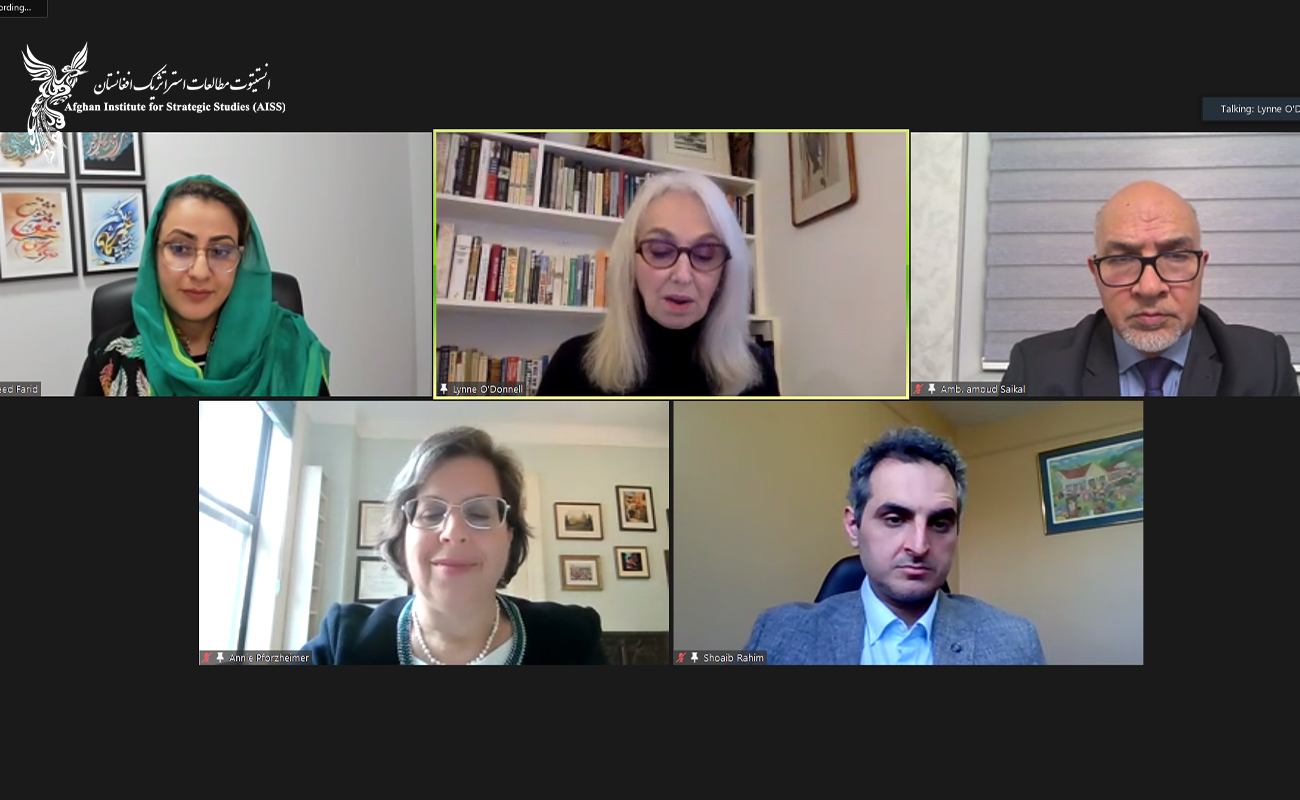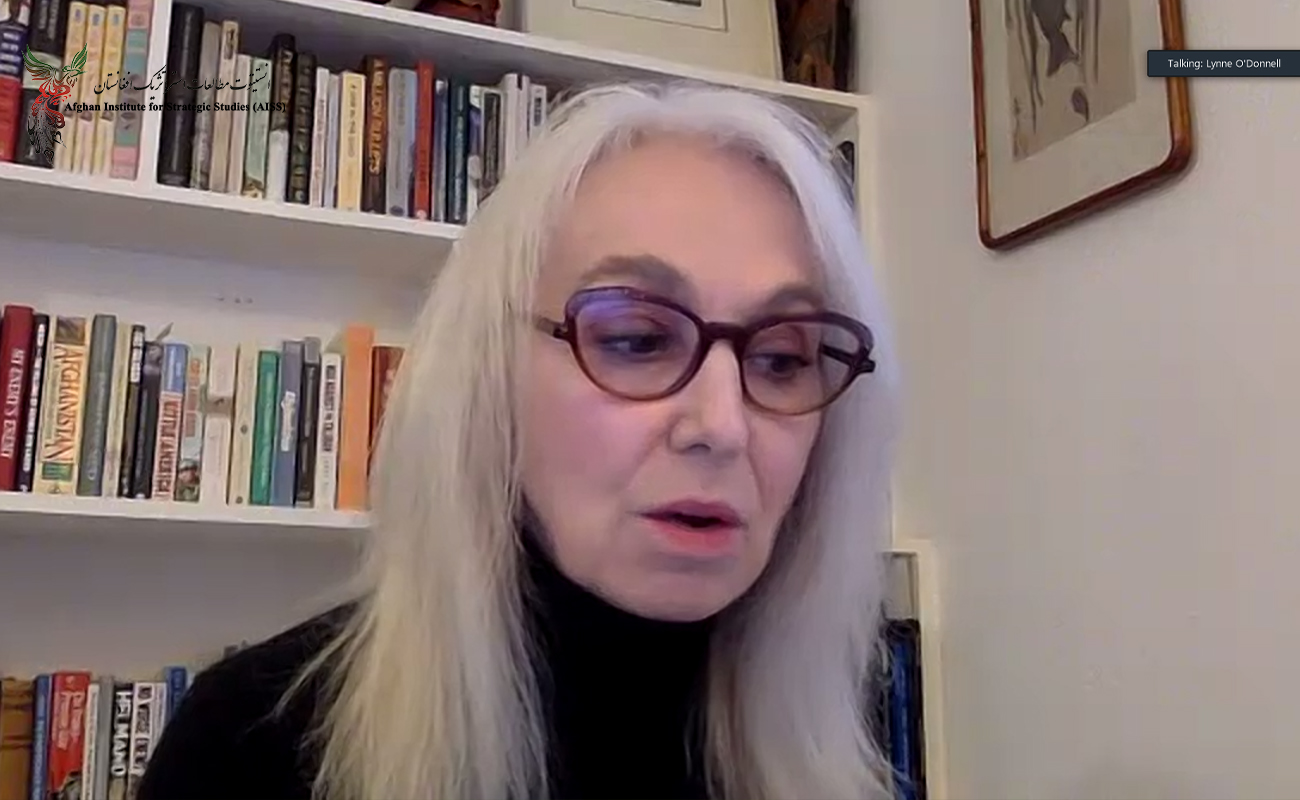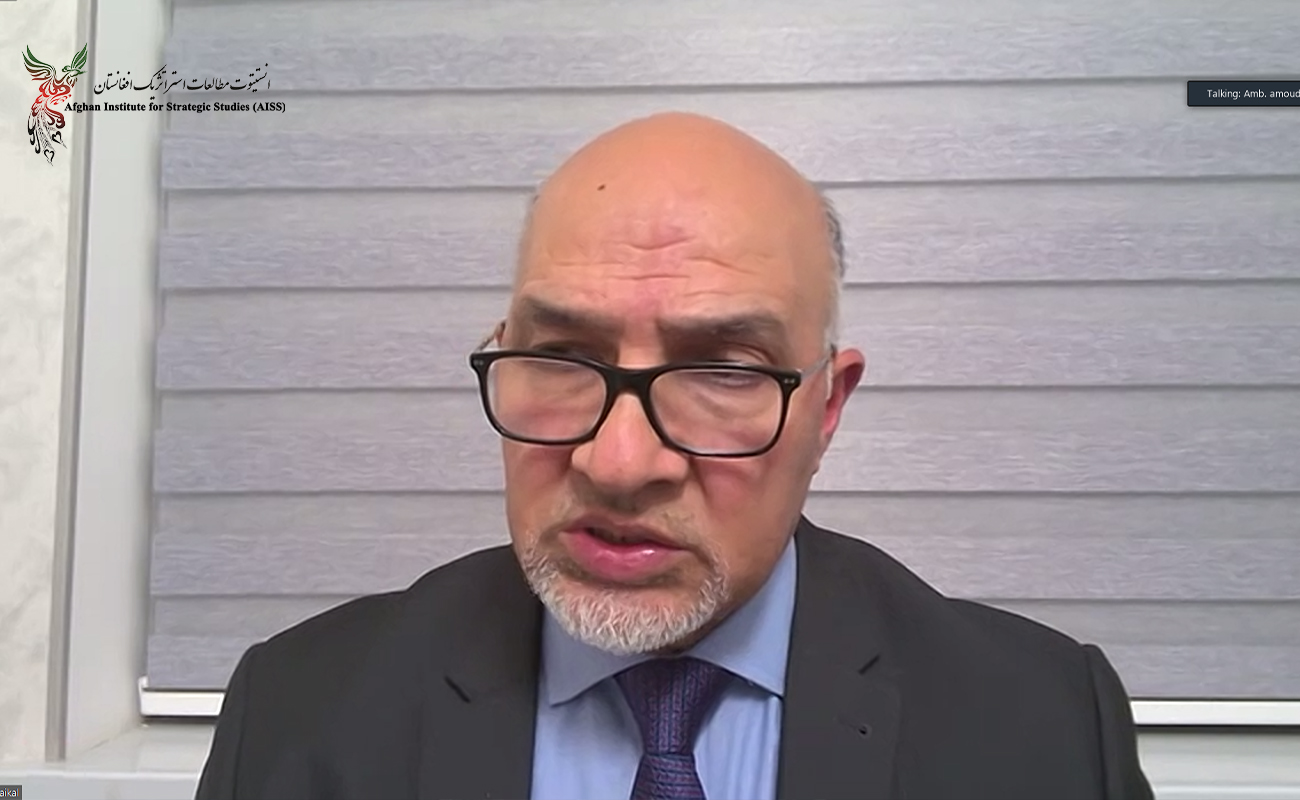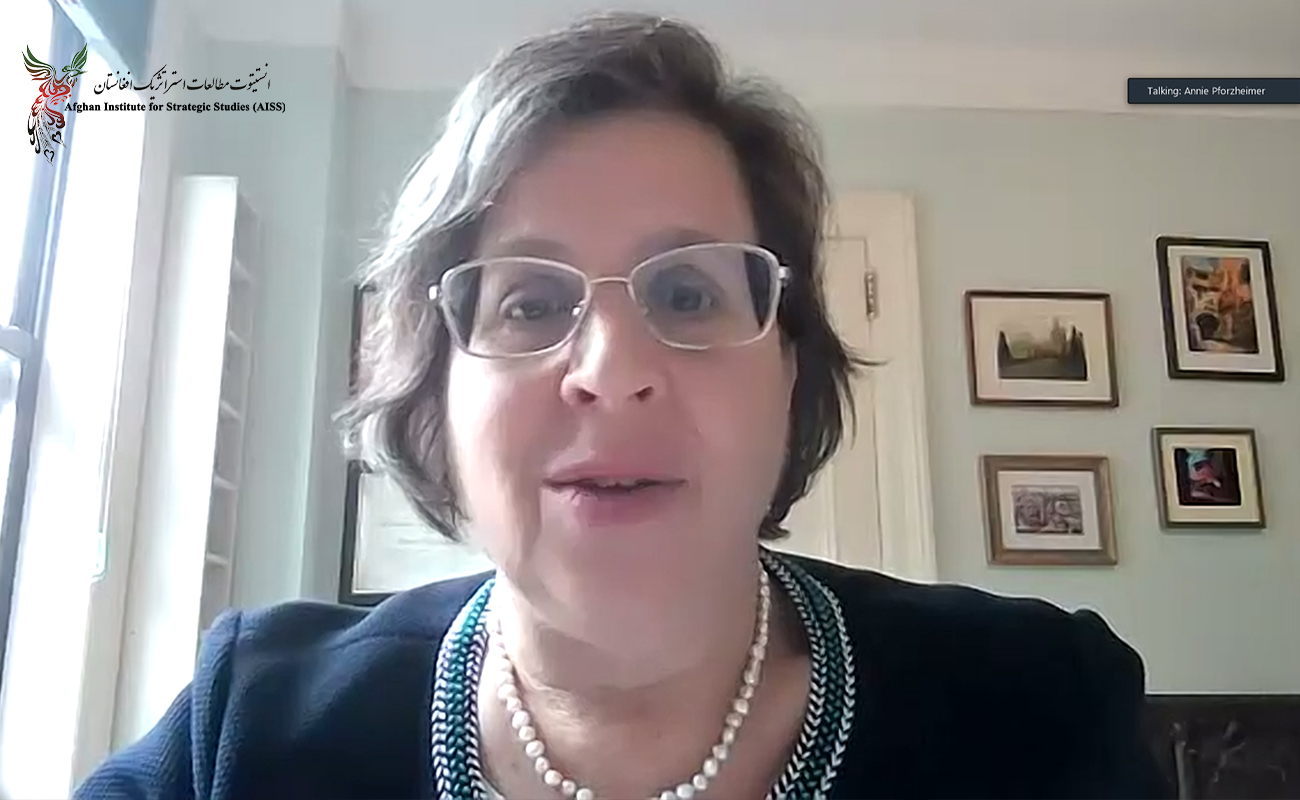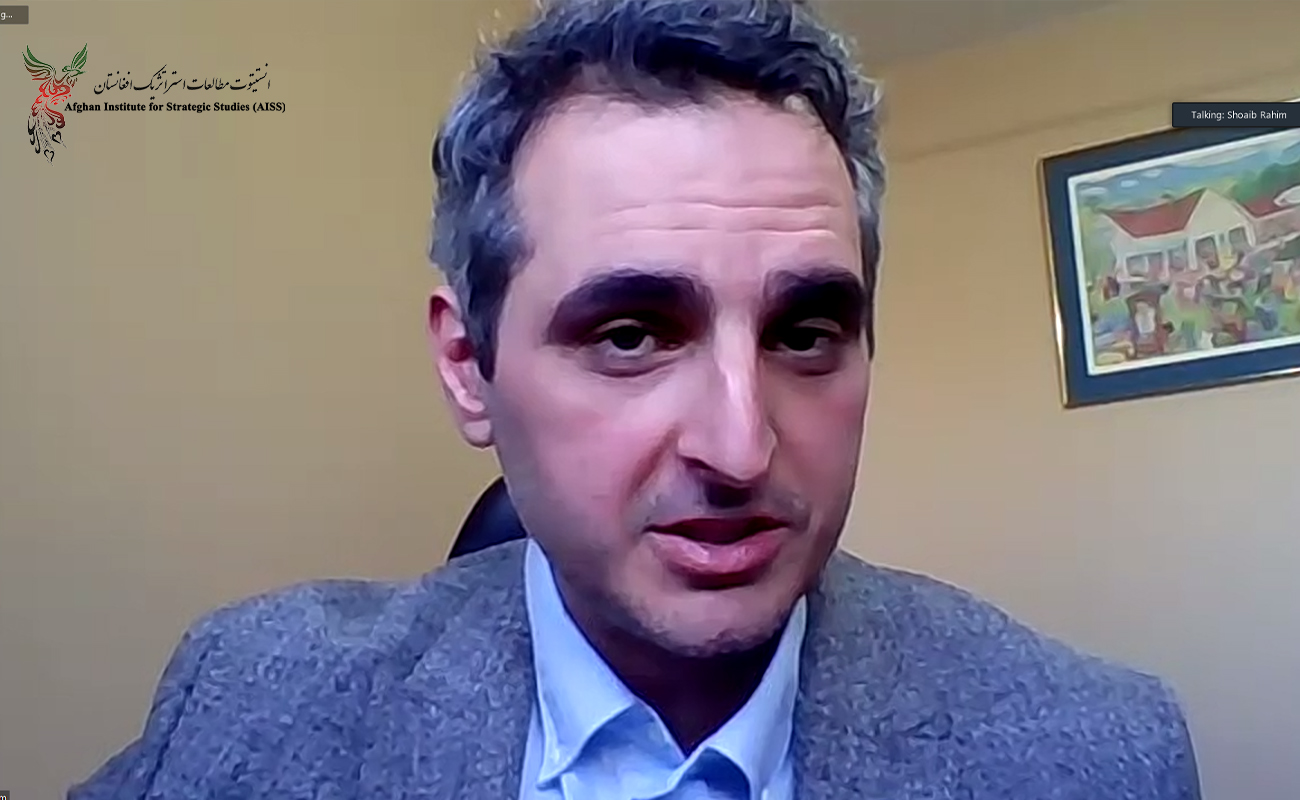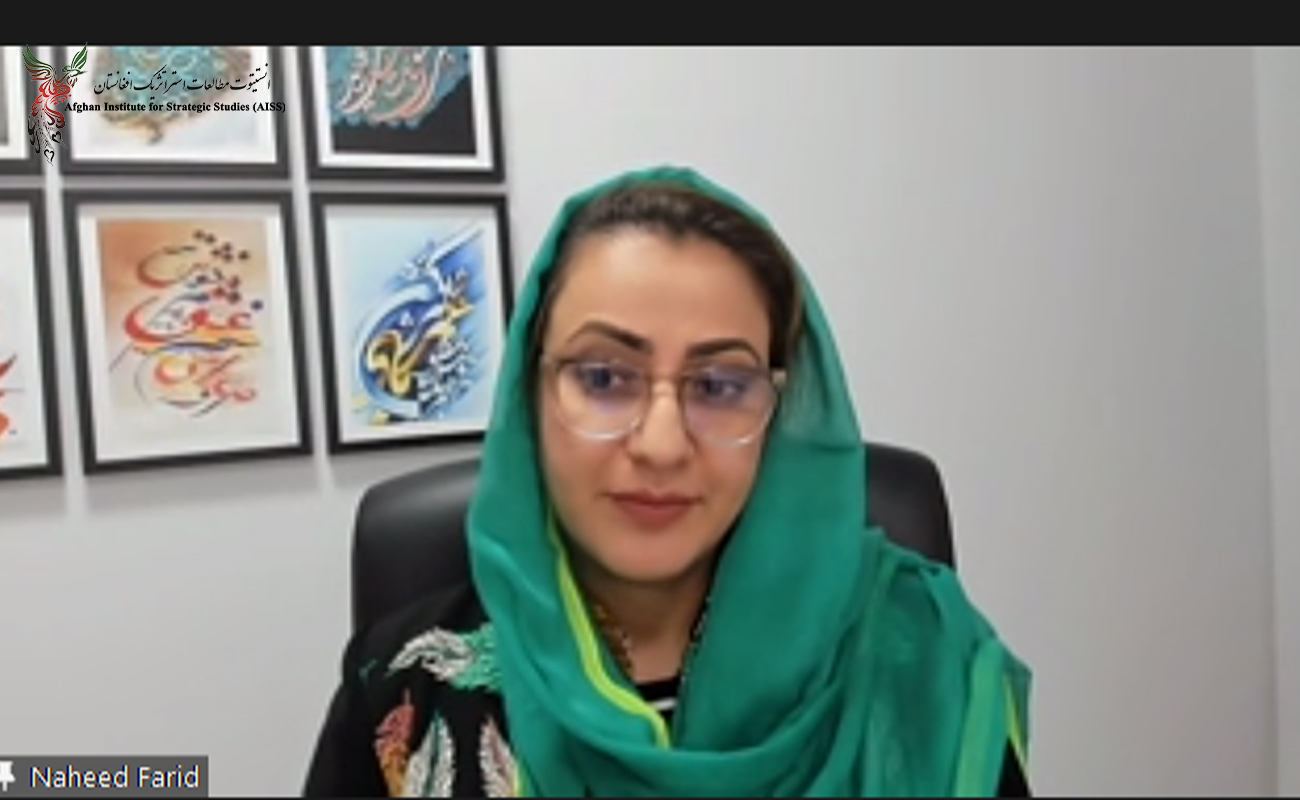Online Roundtable Discussion on Reimagining UNAMA: From Powerbroker to Principle- Centric
The role of the UNAMA has been sensitive and contentious for more than 2 decades. Since the return of the Taliban to power on August 2,021, UNAMA’s role has arguably now become even more important than ever, serving as a bridge for Afghanistan's people to the outside world, and as a conduit from the Western world.
As part of its ongoing online discussion series, the Afghan Institute for Strategic Studies - UK (AISS-UK) organized an online discussion yesterday, the 20th of February 2023 to discuss UNAMA’s role in Afghanistan and its engagement in the peacebuilding process from a Powerbroker to a more Principle-Centric player. The program featured Amb. Mahmoud Saikal, former PR of Afghanistan to the United Nations, Annie Pforzheimera
former Deputy Chief of Mission, U.S. Embassy, Kabul, Naheed Farid, former Member of the Afghanistan Parliament, and Shoaib Rahim, former Senior Advisor to Afghanistan's State Ministry for Peace. The panel was moderated by Lynne O’Donnell, Journalist/Author.
Speakers discussed UNAMA’s historical legacy, concerns regarding the upcoming renewal of UNAMA’s mandate, and the trust deficit that Afghan people have now for the politics and diplomacy of UNAMA.
Pointing to the factors that shape UNAMA’s mandate, Amb. Saikal stated that the nature of the conflict in Afghanistan involving national, regional and global interest over 45 years’ time, ban the functions, powers and the political dynamics of the UN Security Council. Specifically, the interest relations between the 5 involved members.
Amb. Saikal also raised the concern regarding the trust deficit for politics and diplomacy and how UNAMA’s mandate is perceived. He said that currently politics and diplomacy have a huge trust deficit among the people of Afghanistan and the region and now it is proven that diplomacy not only has been the solution, but on occasion, it has also paved the way for more walls in security and stability. So, Amb. Saikal stressed “unless and until we bring trust in politics and diplomacy, UNAMA’s mandate would be looked at with suspicion, regardless of its substance”. Amb. Saikal added that UNAMA’s has played a key role in the coordination and facilitation of humanitarian assistance, But when it comes to the facilitation of dialogue with the development actors and stakeholders, UNAMA’s absence on different platforms has been noticeable, for example, the Vienna conference in September last year and Herat Security Dialogue in November last year in Tajikistan. Amb. Sakal also criticized UNAMA for having little interaction between with the real opponents of the Taliban. Amb. Saikal added that UNAMA has been more reactive than proactive and preventive “The UN was not born to react, It was supposed to prevent crisis from happening”. Given these scenarios, Amb. Sakal stressed that the UN needs to get ready to play its greater role introducing preventative and proactive provisions in the UNAMA’s mandate.
Given the uncertainties within the Security Council, however, Annie Pforzheimer said besides opening the mandate to amend, it is necessary to extend the mandate for another year, and rather than potentially losing them, the focus should be on the implementation of what's already in the mandate. With the goal of creating an inclusive government that protects human rights, Annie stressed the need for more action by the special representative and senior UN leadership. Annie urged that at the provincial level, UNAMA should create space for dialogue between Taliban and Non-Taliban leaders over the humanitarian aid distribution issue to ensure that aid is reaching those with the greatest need and at the national level UNAMA should be holding talks with Afghan opposition at exile, members of civil society, particularly women. and even with the Taliban.
Annie urged UNAMA to downgrade its interaction with the Taliban authorities to the technical and working levels necessary to carry out the humanitarian aid distribution and to end the ceremonial meetings that occur between UNAMA and the Taliban.
Pointing to the state of gender apartheid in the country, Naheed Farid argued that the new mandate of UNAMA should stay focused on outlining the UN's priorities that are facilitating inclusive dialogue and reporting human rights situation. The mandate must leave room for interpretation rather than giving it too prescriptive. Ms. Farid stressed that UNAMA needs strong support from New York, besides a strong mandate to facilitate the establishment of an inclusive and participatory government based on the co-existence, and civilization of the people of Afghanistan.
Contrary to the need for the renewal of UNAMA’s mandate, Shoaib Rahim argued that UNAMA has not been able to do a good job. while outlining the UNAMA’s mandate and its role to engage with all stakeholders, Mr. Rahim said since the return of the Taliban, UNAMA has not been engaged with domestic actors or non-Taliban actors within or outside the country. Mr. Rahim stated that UNAMA is almost held hostage by the Taliban, and the level of the fear of mission engagement with the Taliban seems to be a driving motivator. He stressed that Security Council should renew UNAMA’s mandate as its continuation is doing more harm than good not only to the citizens of Afghanistan but the interest of the international community. He qualified his point by stating the role of other UN agencies such as UNDP and UNOCAH in delivering humanitarian assistance.
At the end of this discussion, the audience also raised their concerns and views regarding UNAMA’s accountability to the people of Afghanistan in the form of questions with the speakers.

